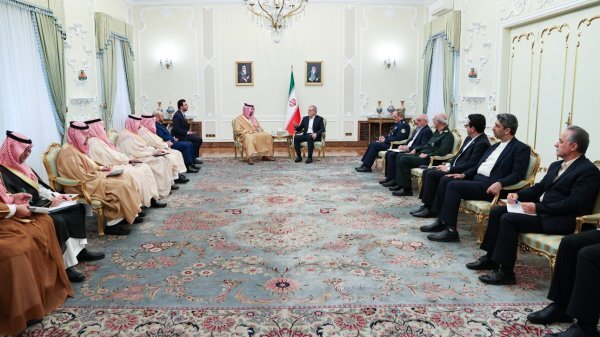Tehran – “All years ago, where you were sitting now, your uncle King Abdullah sat there. We told him that we are beneficial to ourselves and that we are beneficial to ourselves.
These words were spoken at a recent meeting between the envoy of the Crown Prince of Saudi Arabia and the leader of the Islamic Revolution in Tehran. Here, the message from Mohamed bin Salman sent to Ayatollah Khamenei is considered one of the important events affecting the shift in the security order of the West Asia region. The event could mark the beginning of Riyadh’s “regional-centric” approach to security in West Asia.
It has been nearly 20 years since Ayatollah Khamenei treated these words to the Saudi King. Meanwhile, Riyadh chose to outsource cross-sectional forces, particularly the US, rather than focusing on regional security strategies by regional states. With Saudi Arabia’s entanglement in the quagmire of the Yemeni War and its transformation into a low-value pawn in the eyes of Washington leaders, it was seen as a “dollar suitcase,” but was a result of Saudi leaders’ refusal to actively respond to Tehran’s provision of friendly cooperation.
But now it appears that the young Saudi crown prince is seeking another strategy. It appears to pave the way for strengthening bilateral relations in Tehran-Ryadh and solving regional equations through regional stakeholders. Mohammed bin Salman (version 1.0) who has experienced Trump’s dealing with America has reached a strategic understanding that conflict with Iran and growing tensions in West Asia are Washington’s fundamental strategies for states in all regions. Therefore, in a special message to the Iranian supreme leader, he called for the establishment of bilateral relations at the highest level.
A trusted source speaking to the Tehran Times said the Saudi government is trying to change its involvement with Iran from a security political framework to a cultural, social and economic approach. Iran also shows that it is ready to embrace this path and strengthen bilateral relations to impact regional security by extending its “extra protocol” to the Saudi Arabian defense minister.
One of the right moments for diplomatic efforts in this field is the visit Donald Trump will be visiting Saudi Arabia in late May. This trip requires careful planning and political officials in Riyadh must make them aware of the consequences of the Persian Gulf escalation. Thursday’s meeting revealed that there are other reliable channels to combat Washington’s miscalculation. This could prove to be more effective than bilateral negotiations with the US
The issue has gained even greater importance as Israel is currently implementing genocide in Gaza and is attempting to change local safety orders by erasing the issue of Palestinians. The Zionist strategy not only identifies Iran as its main enemy, but also raises deep concerns about Saudi Arabia as a sacred place. This approach led Riyadh to express his dissatisfaction with Israel’s obstruction of Tehran and Riyadh relations during a meeting of the defense minister with Iran’s supreme leader despite all the pressures of the US.
In this context, joint actions by Iran and Saudi Arabia to halt Israeli war machinery and save Gaza from genocide could serve as a reliable and important starting point for reviving relations between the two countries and leading a new era of cooperation between them.

